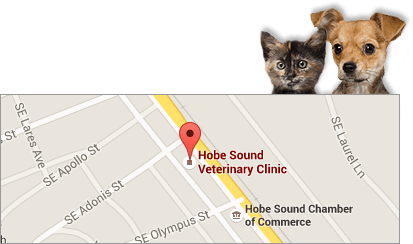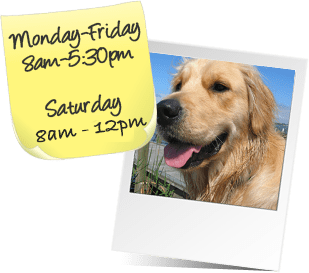The holidays are approaching fast! As seasonal activities and festivities ramp up, many of our furry buddies will be paying very close attention as their favorite humans cook, decorate, and wrap gifts. While this special time of year offers a wonderful chance to spend time with our loved ones, it can be dangerous for our animal companions. For a comprehensive overview of potential risks, you might find our article on Common Holiday Hazards for Pets – What You Need to Know helpful. Here, a vet lists some ways to keep your pet safe during the holiday rush.
Avoid Dangerous Foods
Fido and Fluffy will be paying very close attention to those delicious holiday foods. It’s absolutely fine to include your pet in the festivities by giving them special snacks, but be very careful with what you feed your pet. Many popular foods are toxic to our four-legged friends! Some of the things you’ll want to avoid giving your little (or not so little) buddy are garlic, onions, and chives; meat on the bone; grapes, currants, and raisins; chocolate; nuts; alcohol; pitted fruits, especially avocados; raw dough, meat, or yeast; and anything containing xylitol. Ask your vet for more information.
Petproofing
Many seasonal items can be very dangerous for our furry friends. Tinsel, ribbons, glass ornaments, ornament hooks, and hanging decorations can all choke or injure playful pets. Candles, heaters, and fireplaces are also hazardous for dogs and cats. Additionally, several seasonal plants, such as poinsettias and mistletoe, are toxic to our four-legged companions. Do some pet proofing, and remove or secure hazardous items.
Provide A Safe Haven
Are you hosting a big gathering this year? Crowds and commotion can be quite scary for our furry pals, so you may want to consider setting your pet up in a quiet back room with their food, toys, and treats. It can be very easy for a dog or cat to slip out the door as guests are coming or going! You also don’t want to risk your pet getting accidentally stepped on.
Weather Protection
It can get chilly this time of year, even in warmer climates. Make sure your dog or cat has a nice, comfy bed to snuggle up in. If you have a dog with thin fur, consider getting Fido a cute holiday outfit to keep him comfortable on cold days.
Our Advice on Keeping Your Pet Safe During the Holidays in 2024
How can pet owners safely include their pets in holiday gift-giving traditions?
Pet owners can safely include their pets in holiday gift-giving traditions by choosing gifts that are specifically designed for animals. Opt for pet-safe toys that are durable and free from small parts that could be swallowed. Consider treats that are made for pets, avoiding any with harmful ingredients like xylitol or chocolate. Additionally, gifting your pet a new, comfortable bed or fun, interactive toys can enhance their well-being without risking their health. Always ensure any new items are suitable for the specific type of pet and its size and chewing habits.
What are the signs of holiday-related stress in pets?
Holiday-related stress in pets can manifest through various signs, including hiding or avoidance behavior, decreased appetite, excessive grooming or licking, and sudden changes in toilet habits. Pets may also display agitation or increased vocalization, such as barking, whining, or meowing more than usual. Some animals might show signs of aggression or fear, such as trembling, pacing, or being unusually clingy. Recognizing these signs early and providing a quiet, safe space for your pet can help alleviate stress during busy holiday periods.
What precautions should be taken when using holiday-scented products (candles, air fresheners) around pets?
When using holiday-scented products around pets, precautions are essential to ensure their safety. Opt for pet-safe candles and air fresheners, avoiding those with essential oils like tea tree, pine, and cinnamon, which can be toxic. Ensure candles are placed out of reach to prevent burns or ingestion. Ventilate the area well to avoid respiratory issues from strong scents. Additionally, monitor pets for any signs of distress or allergic reactions, such as coughing, sneezing, or skin irritation. Always consult a veterinarian if unsure about the safety of specific products.
What are the potential risks of New Year’s Eve fireworks for pets?
New Year’s Eve fireworks pose several risks for pets, including noise-induced stress and anxiety, which can lead to destructive behavior or attempts to escape. Loud noises can cause panic, resulting in injuries from running into objects or traffic. Additionally, fireworks contain toxic substances that can be harmful if ingested, leading to gastrointestinal issues or poisoning. The sudden flashes and explosions can also cause fear-induced seizures in susceptible pets. It’s crucial to create a safe, quiet space for pets and ensure they’re microchipped in case they run away.
What should pet owners do if their pet ingests a potentially harmful holiday item?
If a pet ingests a potentially harmful holiday item, pet owners should immediately contact their veterinarian or an emergency animal clinic. Time is critical; do not wait for symptoms to appear. Provide the veterinarian with information about the ingested item, including its packaging if available. Avoid inducing vomiting unless specifically instructed by a professional, as some substances can cause more harm if vomited. Keep holiday decorations and foods out of pets’ reach to prevent accidental ingestion. Quick professional intervention is essential to mitigate health risks.
Happy Holidays! Do you have questions or concerns about your pet’s health or care? We can help! Contact us, your local animal clinic in Hobe Sound, FL, today! Our Veterinary Wellness & Pet Vaccinations service can help ensure your pet stays healthy not just during the holidays, but all year round.




